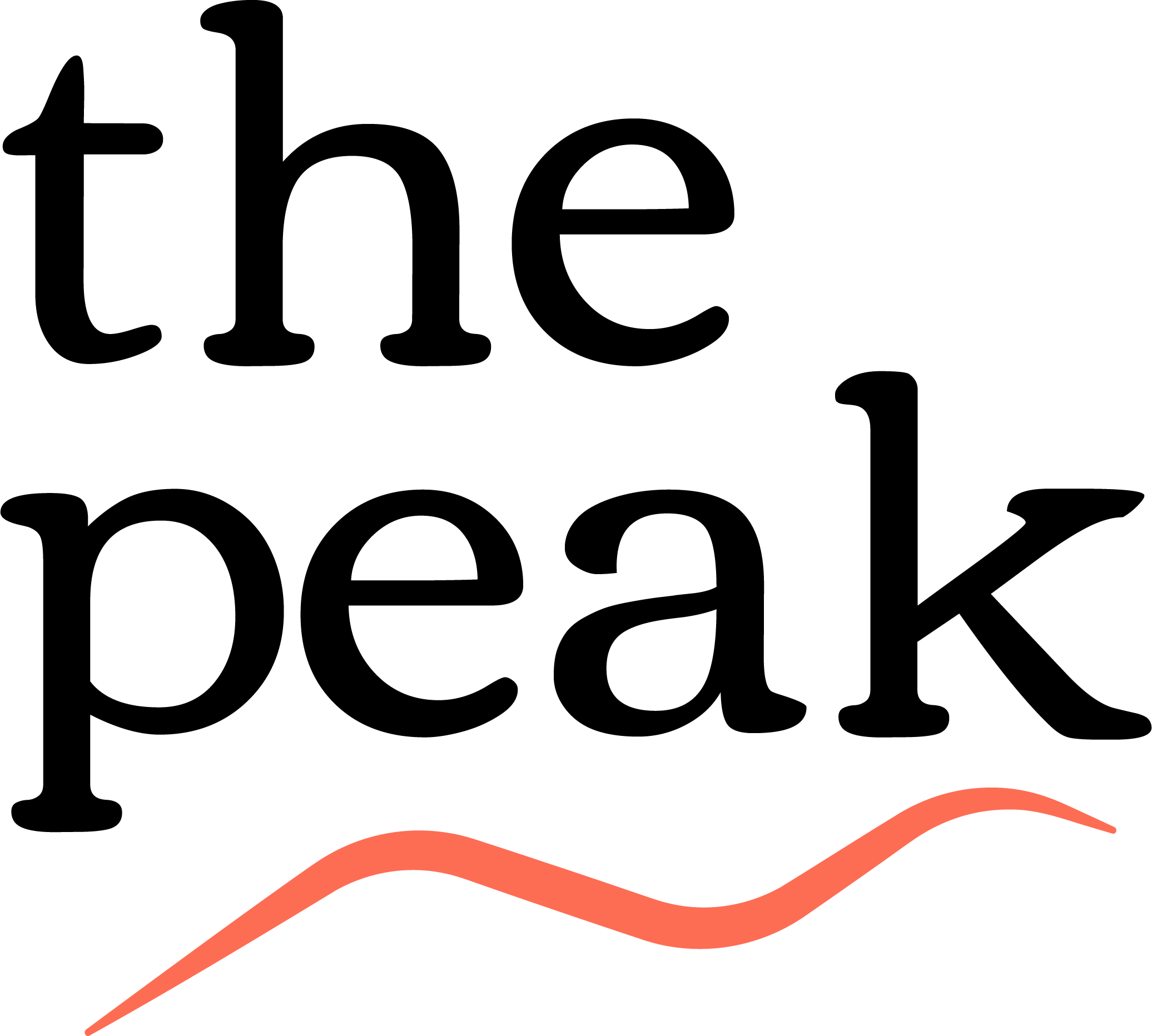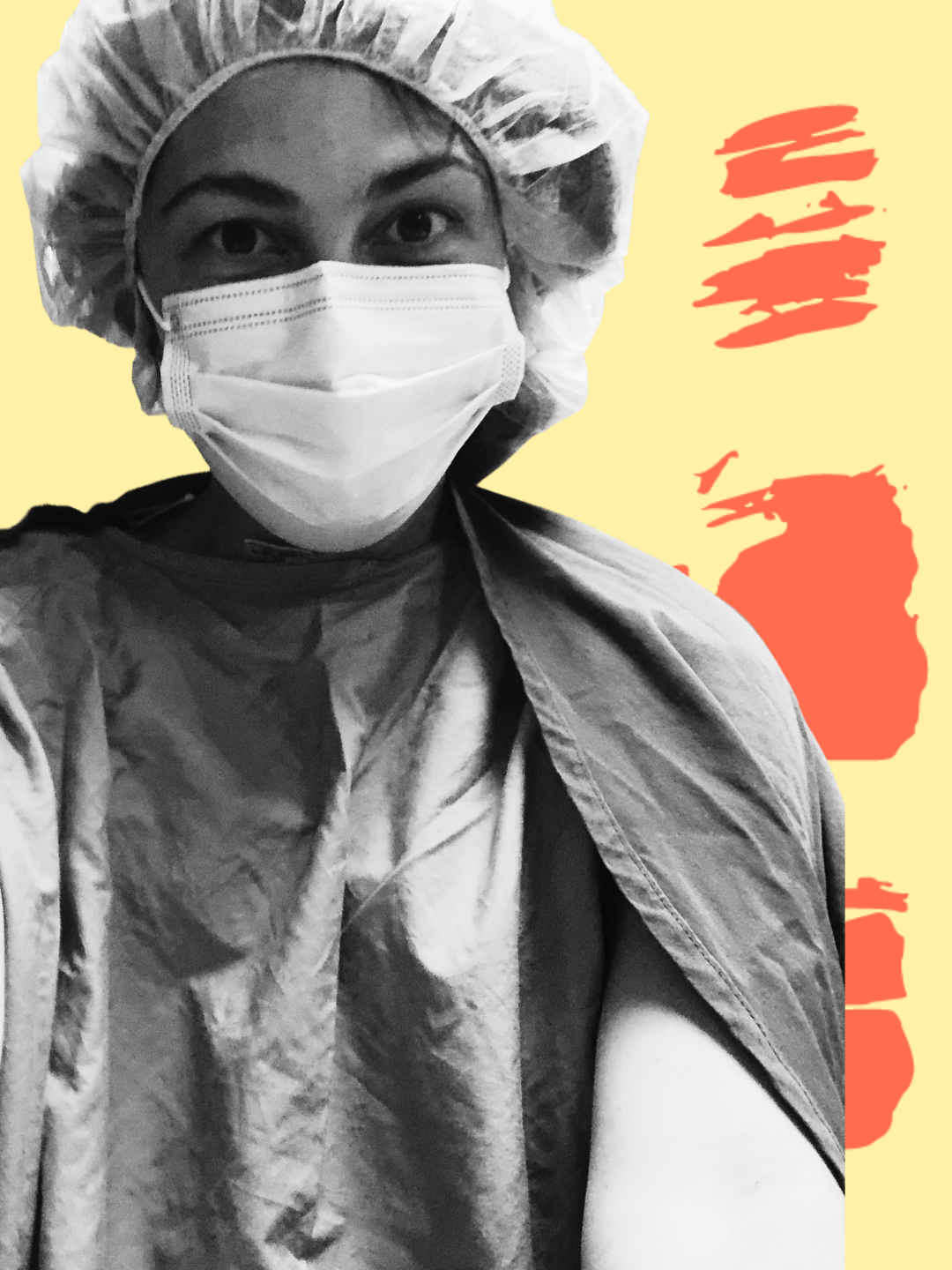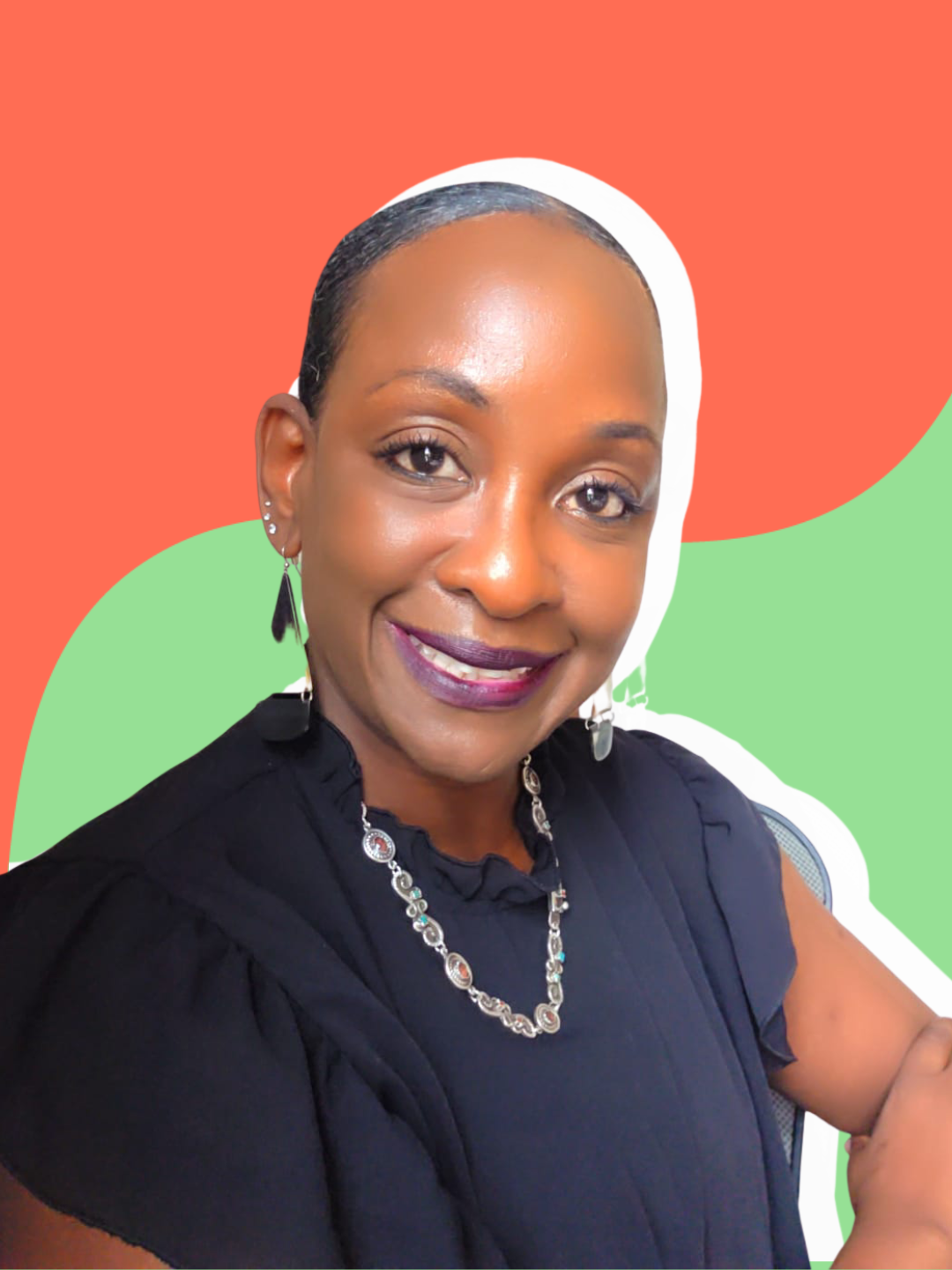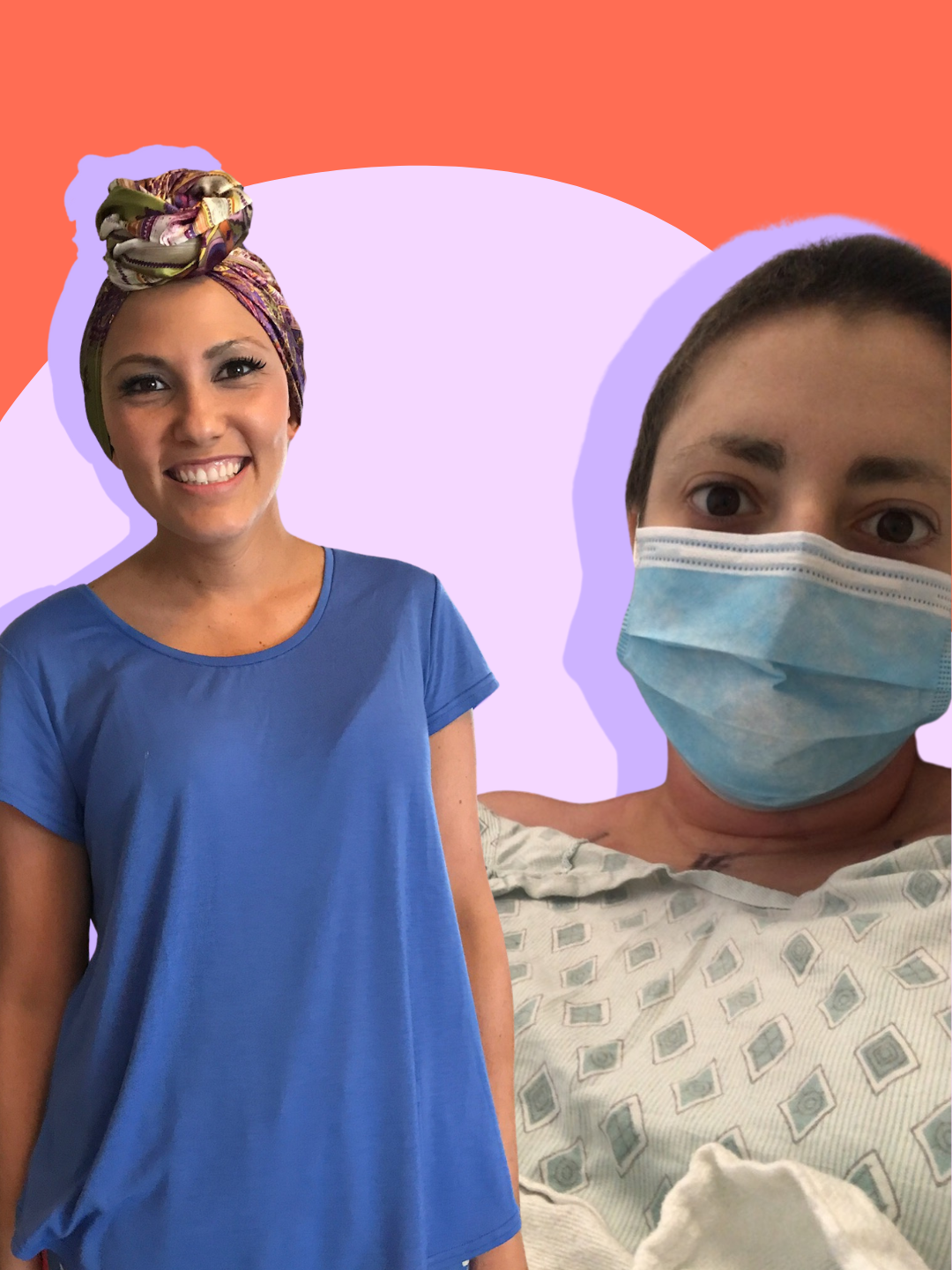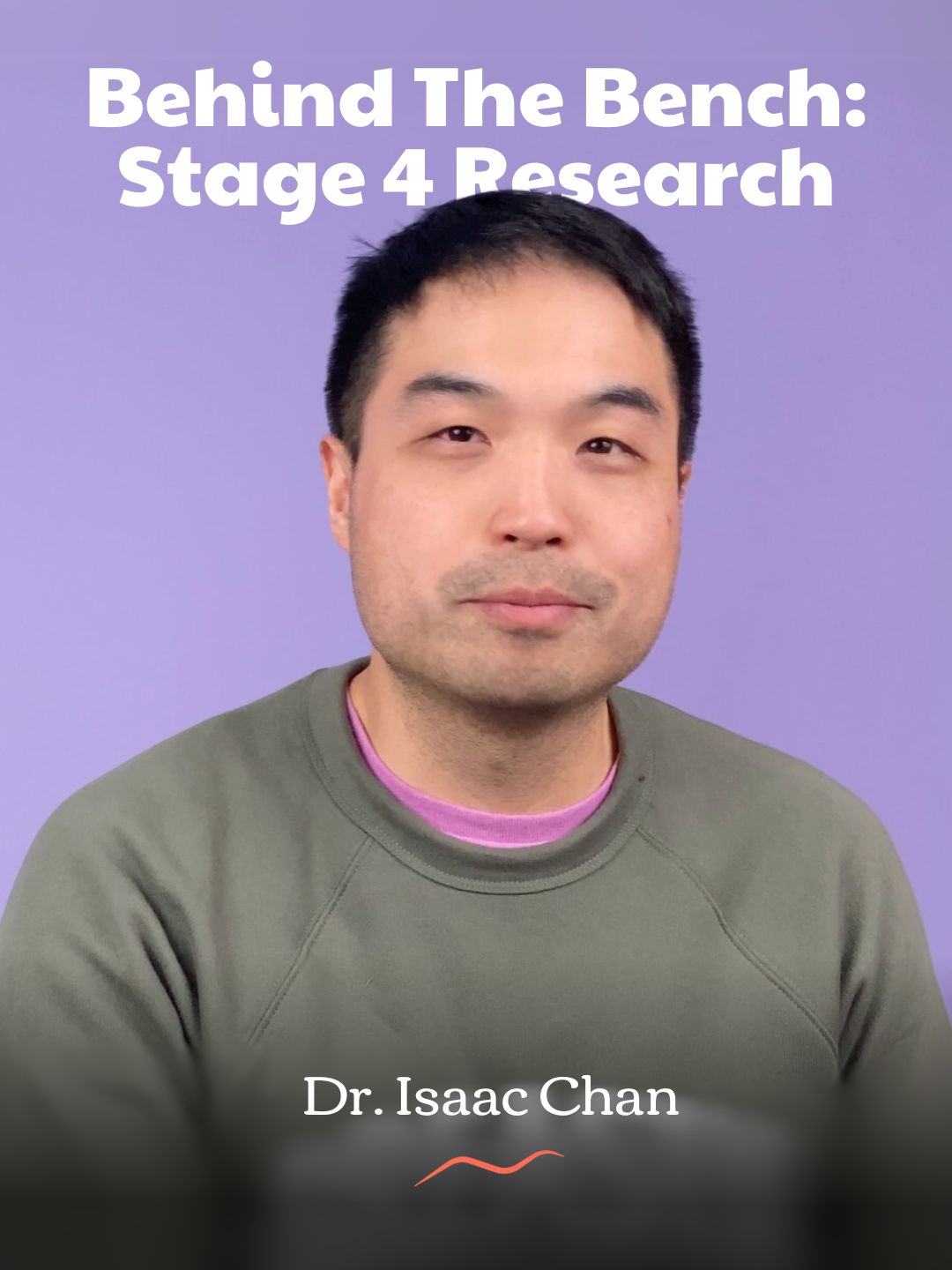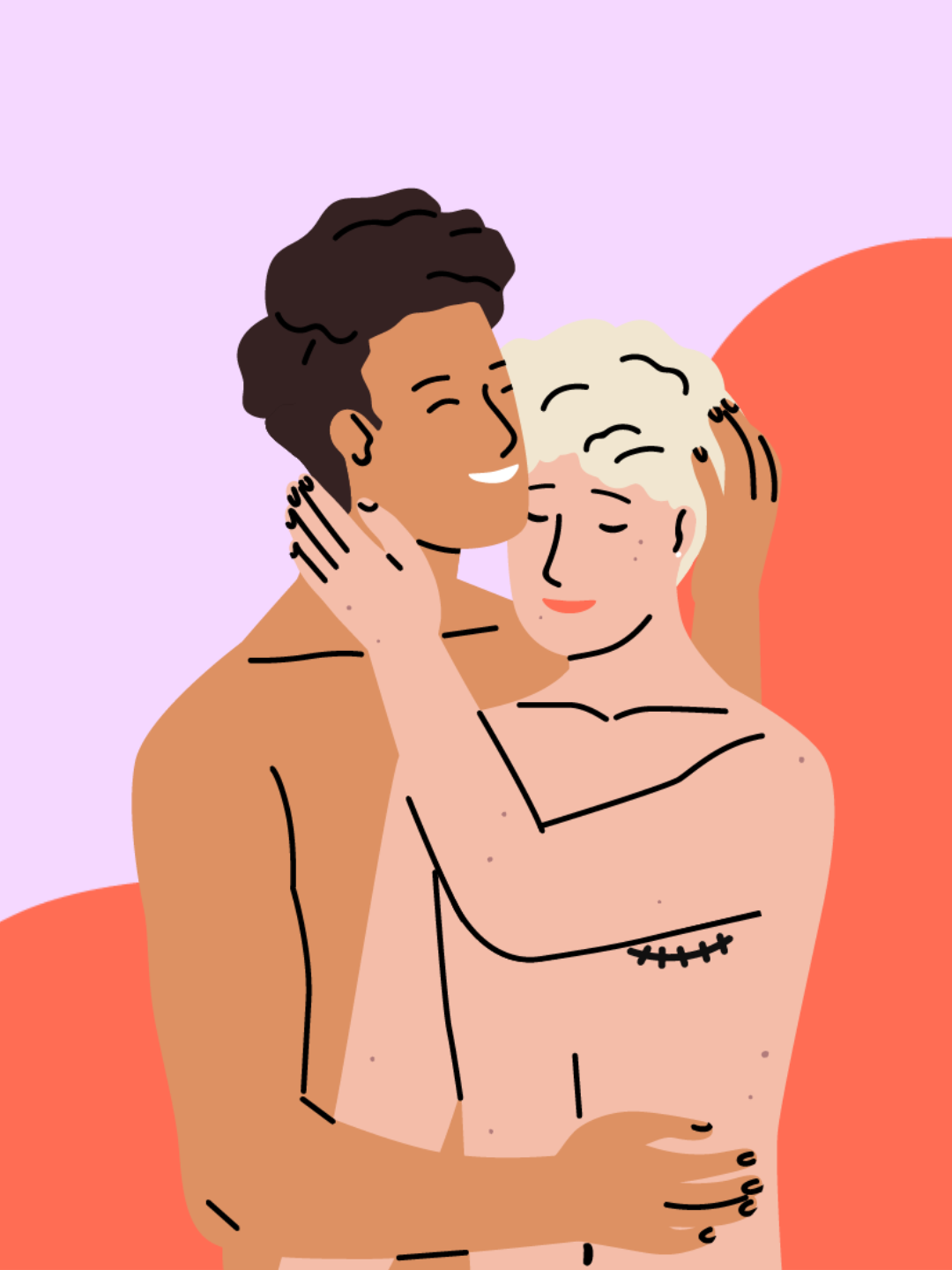A diagnosis of cancer, two months after getting married, was definitely not in the post-wedding plan. We had plans to honeymoon, bask in the newlywed glow and just enjoy each other.
But if you’re reading this, you know, cancer does not care about your plans.
Receiving a cancer diagnosis in your twenties comes with a lot of firsts. For me, it was my first mammogram, first time meeting with an oncologist, first time questioning whether my nipples were a necessity, first time wondering about the shape of my head, and the first time my husband and I were really put on the spot about having kids by someone other than my mother and mother-in-law. Yes, we wanted kids. But .. not yet.
Remember those plans that I mentioned?
That first day of cancer appointments was a long one. I was lucky to have lined up several different appointments in one day, with the hope to get answers. It was a blur of a day filled with imaging, blood draws, discussions surrounding surgical and medical treatment options, and ended in meeting with a reproductive endocrinologist.
As I sat in the fertility clinic, I I didn’t know what the heck to think. My mind was racing with what-if’s. I was just told I had stage two triple negative breast cancer.
Should I be hopeful that they are talking about my future?
If my team is sending me to a fertility specialist to discuss egg harvesting, that probably means they think that I will make it to one day be a mom, right?
But if this was a highly recommended first step – how concerned were my doctors that chemo and radiation would screw my chances of having kids in the way I always thought I would? Another thing to add to the growing list of what cancer will take from me… damn.
After a full day of being prodded, poked and smacked in the face with my mortality … I was in no state of mind to process all that I was hearing about oncofertility and egg harvesting.
Here’s what I wish I knew before starting fertility preservation at diagnosis:
1.You Have a Long Road Ahead of You – But That Doesn’t Minimize the Intensity of This Process
Freezing my eggs ended up being the first step on a long check-list of cancer to-do’s. Although the list was overshadowed by “scarier” things like chemotherapy, radiation and a bilateral mastectomy – this was no walk in the park.
Freezing your eggs is a commitment. It is a process that relies on timing and following precise directions. As part of this process, I received almost daily bloodwork and transvaginal ultrasounds (yipeeee!) and multiple at home injections leading up to the egg retrieval, for which you’re under anesthesia. It’s a lot of hormones, feelings, and discomfort – and no one should minimize that or tell you it is no big deal.
This process is unique to you. Your body is going through a lot. The emotions and pain you may be feeling are valid. Allow yourself to process those feelings and listen to your body – whether it be mourning the loss of your fertility, fearing your future, taking a nap or ravenously devouring an entire pizza.
2. The Decision is Very Personal and Results are Different for Everyone
Eggs vs. embryos: One very personal decision my partner and I had to make was choosing between preserving eggs vs. embryos. My husband and I had just gotten married – we literally just said our vows. We knew our love for each other was strong … but we also had to be realistic.
I received some great advice from my reproductive endocrinologist. She said, “I don’t want to tell you what to do. But cancer is tricky. It can strengthen or it can take a strong toll on a relationship. If you choose to preserve embryos and your fertility is affected by your cancer treatment – you may not have the option to have children with a different partner in the future.”
This was very real and a decision my partner and I had to make. There was so much unknown ahead of us, and we wanted to make a safe, conservative decision. So we froze eggs. This way, my eggs were frozen for future use – and I wasn’t tied to his sperm (although spoiler alert, his sperm ended up being my sperm of choice when we reached the fertilization stage).
Numbers don’t mean the same for every person.
I was freakin THRILLED and was nicknamed “Fertile Myrtle” after my egg retrieval. I successfully harvested 26 eggs – 17 of which were mature and high quality. I thought I was guaranteed to be an octomom at minimum.
But, when the time came post-treatment, to fertilize those little eggs into embryos – it did not go as planned. Unfortunately, with this process – nothing is guaranteed, and it takes a lot more than just preserving your eggs to have a baby. After intense chromosomal and genetic testing, we learned that the embryos were not viable for pregnancy.
We ended up completing another round of preservation - a few years after treatment — to create healthy, chromosomally normal, BRCA free embryos. (Did you know that science is amazing and you can actually test the embryos for a known genetic mutation?)
Although looking back, I appreciate having the “win” of many eggs as I approached my cancer treatment, I wish I had known more about the probability a frozen egg would fertilize and successfully be transferred for pregnancy.
3. It’s Expensive AF But There are Amazing Resources Out There
Despite having decent insurance, this process is often NOT covered. Blasphemy! Infertility of all kinds — especially when caused by treatment for CANCER — is a medical condition.
Out of pocket, freezing your eggs can be upwards of $15,000 per round.
Even though your insurance may not cover i t— I have learned about some amazing resources for cancer patients:
- Chick Mission provides monetary need-based grants to cover the cost of preservation for cancer patients.
- Livestrong provides resources and financial support to survivors whose cancer and its treatment present risks to their fertility.
- Heartbeat program is a program through Walgreens and Ferring Pharmaceuticals that provides fertility medications at no cost to eligible patients.
4. You Don’t Have to Deal With Any of This Alone.
This shit is hard.
I recognize that I was fortunate to have a supportive partner to go through this with and it made the process a little easier knowing we wanted children one day. I empathize for those who aren’t so sure of their future life plans and are confronted with these decisions. I am grateful I listened to my doctor and trusted my gut, I encourage you to do the same.
Remember, there is a whole community here for you. If you have questions, need support, or want someone to talk to about freezing your eggs – don’t hesitate to reach out to a Breastie. None of us should have to feel alone!
